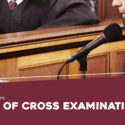Some attorneys look at the facts of a case and see it as impossible. We look at a case like that and find opportunities.
Recently, a client hired us who had been changed with an OUI. She was in an accident, failed the field sobriety tests, and blew a BAC of 0.24% which is three times the legal limit. Most attorneys look at facts like these and just plea guilty. They don’t see any sense in defending that case.
At Bowser, we look deeper. We investigate. We studied the case and found evidence that would help us greatly at trial. Since we knew about the science behind the breath tests, we knew that we could get the breath test result dismissed. This would greatly weaken the Commonwealth’s case.
So we prepared for trial and demanded that the Commonwealth hand over all of the evidence including the booking videos. When the first trial date arrived, the Commonwealth was unable to provide the booking videos. The same thing happened a second time and a third. We then motioned to the court to dismiss the charges and our motion was granted. Our client was spared the OUI charge and walked away very happy with the result.
The moral of the story is, good things happen when you hire a trial lawyer. There are many attorneys out there who do not regularly take cases to trial. I consider this a disservice to many clients.
As a trial lawyer, I set up the case to go to trial and held the government accountable to provide all of the evidence. Since they could not, we secured a very favorable result.
Good things often happen when you push for a trial.
Here are some case results from clients who we represented in their OUI cases:
Not Guilty Verdict MA OUI ChargeDecember, 2019
MA OUI Plea vacated OUI Charge DismissedDecember, 2019
Not Guilty Verdict MA OUINovember, 2019
MA OUI Charge DismissedNovember, 2019
ME OUI Drugs Charge DismissedNovember, 2019
Not Guilty Verdict MA OUI ChargeOctober, 2019
Application for OUI Drugs Charge dismissedOctober, 2019
Not Guilty Verdict MA OUIOctober, 2019
Not Guilty Verdict MA OUISeptember, 2019
Not Guilty Verdict MA OUI ChargeFebruary, 2019
Not Guilty Verdict MA OUIJanuary, 2019
Not Guilty Verdict MA OUI ChargeJanuary, 2019
Not Guilty Verdict MA OUI ChargeJanuary, 2019
Not Guilty Verdict MA OUI ChargeJanuary, 2019
MA OUI Complaint Application DismissedJanuary, 2019
Not Guilty Verdict MA OUI ChargeJanuary, 2019
Not Guilty Verdict MA OUIDecember, 2018
Not Guilty MA OUI ChargeDecember, 2018
Not Guilty Verdict MA OUIDecember, 2018
Not Guilty Verdict MA OUINovember, 2018
Not Guilty Verdict MA OUINovember, 2018
Not Guilty MA OUI ChargeOctober, 2018
MA OUI Charge DismissedOctober, 2018
Not Guilty Verdict MA OUISeptember, 2018
MA OUI Charge DismissedSeptember, 2018
Not Guilty Verdict MA OUISeptember, 2018
Not Guilty MA OUI ChargeSeptember, 2018
MA OUI Drugs Charge DismissedDecember, 2017
Not Guilty Verdict NH DWI Drugs ChargeAugust, 2017
NH DWI Drugs Charge DismissedMay, 2017
Not Guilty Verdict NH DWI Drugs ChargeMay, 2017
MA OUI Drugs Charge DismissedFebruary, 2017
Not Guilty Verdict MA OUI Drugs ChargeFebruary, 2017
Not Guilty Verdict MA OUI ChargeFebruary, 2017
Remember, we have handled these cases for many drivers in the past and will fight for your rights. We will not settle until we have secured the best outcome for you.











